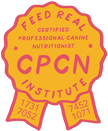|
You see him lying there on the café floor, taking a nap under the table. A family with two small children walks by – one child points to the dog as he passes. The dog lifts his head up to gaze at them - then, without a sound, gently rests it back on the floor. The café barista “pings” the service bell and calls out your name – your order is ready. You see the dog’s ear twitches at the sound of the bell but it doesn’t change his demeanor. He doesn’t even leave his position under the table. That’s when you notice the dog’s harness. Five minutes later, you watch as the dog’s person calls the dog out of his slumber to come to her side. The woman leans on the big dog to get out of her chair – that’s when you notice the woman shaking as she struggles to stand. She rises with the dog as her brace, then together, slowly, you watch them walk out of the café. A man holds the door open for the woman and her dog – he even comments on how handsome her dog is. The dog catches the man’s gaze with a little wag of his tail and then it’s right back to business – he must help his woman walk out to the bus stop safely. After all, he is a service dog – and he has a very important job to do… The Making of a Superhero A service dog’s job is not an easy job to fill. Many dogs do not have the level of confidence, self-control, patience, problem-solving skills, or healthy level of independence required to handle the day-to-day human operations of office buildings, travel systems, public forums, restaurants and malls – no matter how much we try to make them have these skills. Teaching a dog a specific task associated with a disability is often the easiest part; it’s building the lifestyle skills that lead to superb behavior in public venues that takes much longer.
Ask anyone who has ever volunteered countless hours to raise a pup for a service dog organization: as Maya Angelou once said, “The price is high, but the reward is great.” My very good friend Nicole Guite has raised 15 dogs for three different service dog programs (Guiding Eyes for the Blind, Heeling Autism and BluePath Service Dogs) over the years. She knows firsthand how much the experiences she gives her pups during the puppy-raising process can have an effect on their future vocation.
“There are times when we are actively training skills - whether that be sit, down, come when called, or to ignore distractions on walks - but there are also times where the training is more passive, such as the puppy learning to be quiet and calm in a crate when I'm not home. Training a service dog puppy involves incorporating the puppy into your daily activities and teaching the puppy appropriate behaviors as you go, rather than setting aside 20 minutes a day to train,” says Nicole.
For Nicole, one of the most fun and important parts of training a future service dog is going on regular socialization outings to work on building confidence, patience and impulse control. She picks socialization outings carefully to ensure her pup’s success, rather than to meet her own agenda, and only chooses to take the pups on outings that they are ready for.
Being an Advocate There’s a lot of confusion in the current social climate regarding service dogs and what makes them different from ESA’s (Emotional Support Animals) and therapy dogs. For more clarification on this subject, see my blog post Solving the Assistance Dogs Puzzle: Service Dogs, ESA’s and Therapy Dogs. I am often working to bring clarity to people who contact me to inquire about their pet dog becoming a service dog. Nicole has plenty of opportunities to educate the public as well. “Because socialization is so important for a future service dog, I spend a lot of time out and about in public with my service dog puppy in training. As a result, I am often stopped by people who want to greet my puppy, which always gives me an opportunity to educate the public about the organization I'm raising for, as well as service dogs in general.”
Now that you know this, let’s go back to the brain surgeon or rocket scientist example again… A career like that requires a person to endure countless hours of study, hands-on practice, and years of honing his or her skills and achieving the right licenses and certifications – you don’t just turn into a brain surgeon after a 6-week online course. For many of us, those jobs are beyond our desires or capabilities and we would be doing a great disservice to people in those fields if we only pretended to do what they can actually do successfully. In fact, there’s a word for that – it’s called “fraud.” And a dog does not get out of bed one day and “decide” he’d like to become a service dog. This is a decision that some humans try to make for their dogs without thinking about whether or not it is in the dog’s best interest. People who try to pass their own pet dog off as a “service dog” just to get onto an airplane or into a store may not realize how much an untrained dog wearing a “service dog” vest can infringe on legitimate service dogs. Just as people may not realize how their own actions can negatively affect service dog teams. Nicole says, “Something that may seem harmless, like making kissing noises at a service dog or petting the dog even when the handler asks you not to, can cause issues for the dog and its handler. Service dog handlers rely on their dogs to keep them safe and distracting the dog for even a moment could put the handler and the dog in danger.” I can understand why many of us would like to have service dogs, though it’s important we respect those that need to have service dogs. While I do get a little nervous flying on an airplane when there’s some turbulence or being stuck on a bridge in traffic, I do not spiral into an emotional breakdown. And while my dog provides me with great emotional support – he’s there to pet when I just need a friend and just looking at him makes a bad day melt away – I’m just a “normal” person with just your average emotional highs and lows. I do not have a physical, mental or emotional disability that affects my ability to function on a daily basis. My condition does not warrant me unstable without the aid of a service dog or ESA.
The Reward is Great As any puppy raiser will tell you, the most difficult part of raising a service dog is definitely when the dog has to leave the raiser to begin formal training back at the service dog school. “It's something you know is going to happen so you try to prepare for it but when the time finally arrives, it is difficult regardless of whether it's the first puppy you raised or the 12th puppy,” says Nicole. Yet the day is bittersweet. “Mixed in with the feelings of sadness is also feelings of excitement - you have just spent the last year preparing the puppy to enter formal training and it is exciting that the time has finally arrived for them to begin that part of their journey. I try to focus on the feelings of excitement and how my puppy is one step closer to changing someone's life. It also helps to get another puppy right away!” This is why Nicole is currently raising her 15th puppy! After months in formal training with a certified service dog instructor, a dog may finally have put all the pieces together and be ready to become licensed as a legitimate service dog. For Nicole and many puppy raisers, seeing their pup meeting this goal is the most rewarding part. “When I see the dog I raised with their new person, it makes all of the heartache from giving the puppy up disappear. It absolutely warms my heart when I see the service dog handler do something as simple as putting their hand on their dog's head or the dog rest their head on their handler's shoe. Even though the dog was once ‘my’ dog, seeing the dog become ‘their’ dog is the proudest moment for me. Some people struggle with that moment when they realize that the handler is now the dog's person but to me, that moment signifies everything I had worked so hard towards - the dog is now ready to fulfill its role as a service dog and change the life of this person.” Aww, anyone else need a tissue now?? Just a few of the people who have benefitted from Nicole's puppy-raising of future service dogs My hope is that since you now have a better understanding about what goes into making these superheroes among us, you too will find it easier to respect service dogs and their work, and also help support the movement to educate the general public about their very important role. Together through education, perhaps we can decrease the number of people who take advantage of the service dog title every year and help those who have a true need for service dogs acquire the superbly-trained dogs that they need in the right way.
2 Comments
Belvie Gilleland
3/5/2018 01:36:05 pm
Excellent article Maria! Hope you are enjoying your new career in dog training! I remember you from GEB. Though I'm not raising now, still enjoy puppy sitting when I can. And, I agree, service dogs are true super heroes!
Reply
Maria Huntoon
3/6/2018 06:16:00 am
Hi Belvie - thank you and I hope you're well! Glad to hear you're still puppy sitting when you can and helping future superheroes along their journey! :-)
Reply
Your comment will be posted after it is approved.
Leave a Reply. |
AuthorMaria Huntoon, CBCC-KA Archives
April 2020
Categories |
Telephone845-549-0896
|
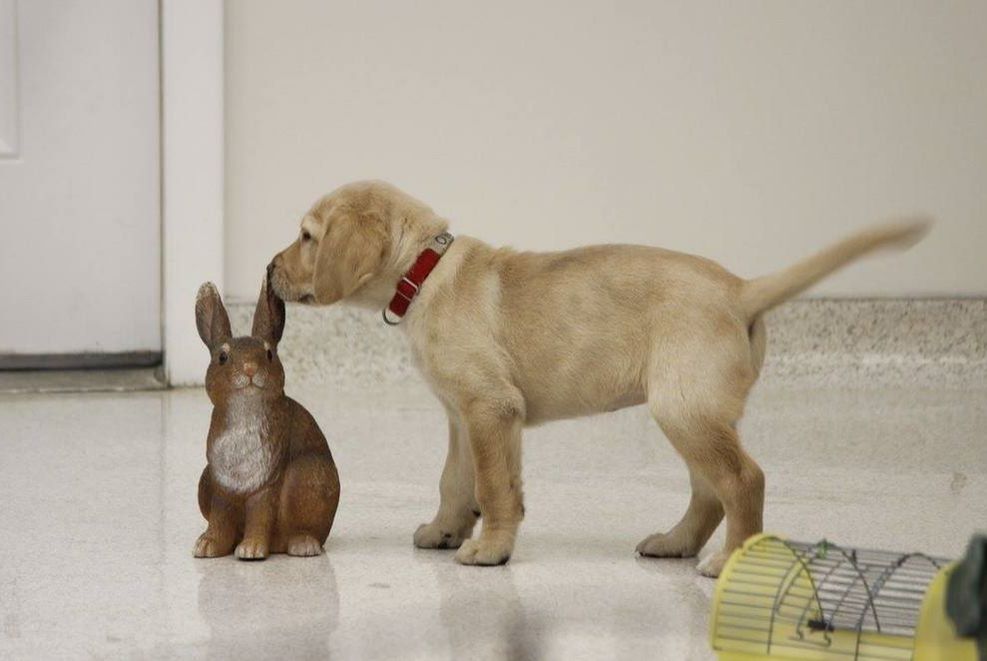

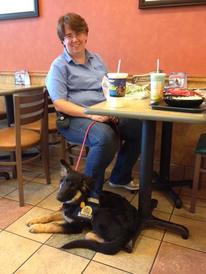
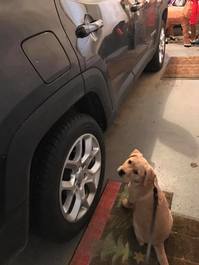
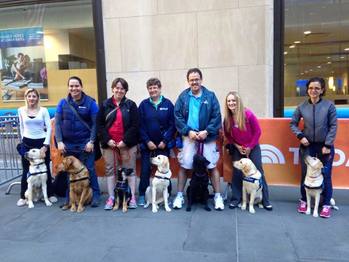
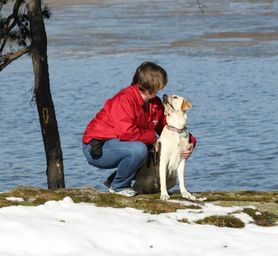
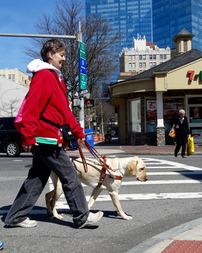
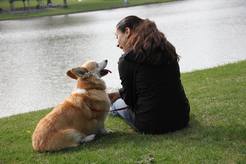
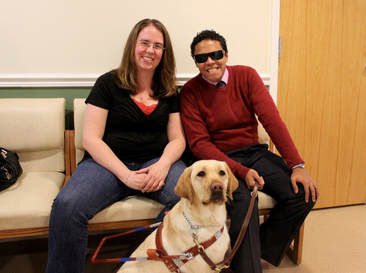
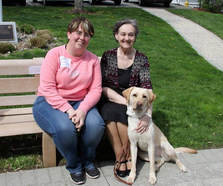
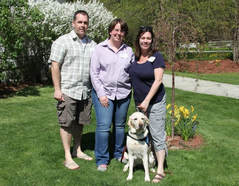
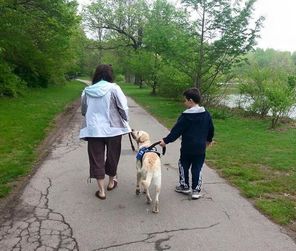
 RSS Feed
RSS Feed


